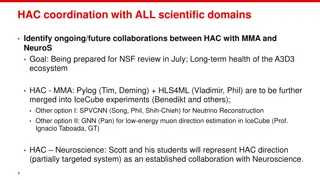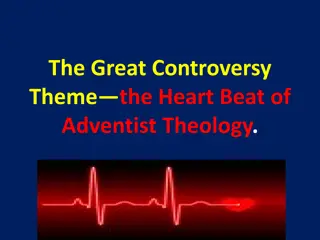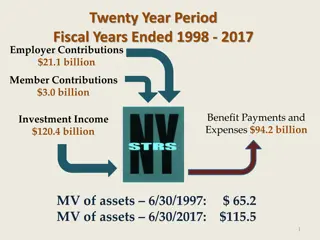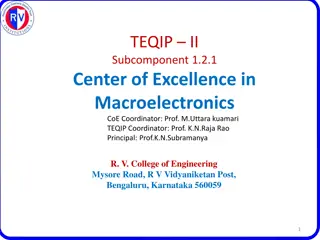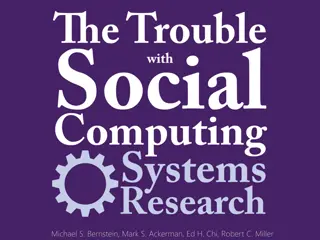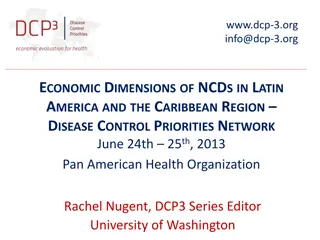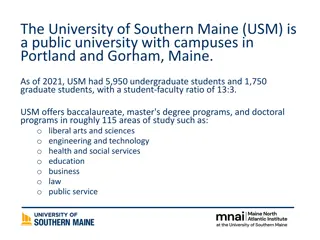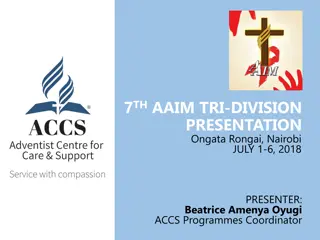Adventist Health Studies Contributions & Collaborations Overview
Adventist Health Studies have made significant contributions to understanding the health and longevity advantages of Seventh-day Adventists, particularly focusing on vegetarian diets and cardiovascular health. With a history spanning over 57 years and various cohort studies, these studies have provided valuable insights into dietary factors and health outcomes. The studies involve a diverse cohort of approximately 96,000 participants recruited between 2002-2007 in the USA and Canada. These findings hold importance for Loma Linda University Health and the Seventh-day Adventist Church, attracting substantial research funding, training opportunities, and collaborations with esteemed institutions. Moreover, the studies extend to cohort consortia and collaborations, such as the Ovarian Cancer consortium and research on non-dietary risk factors for cancer.
Download Presentation

Please find below an Image/Link to download the presentation.
The content on the website is provided AS IS for your information and personal use only. It may not be sold, licensed, or shared on other websites without obtaining consent from the author. Download presentation by click this link. If you encounter any issues during the download, it is possible that the publisher has removed the file from their server.
E N D
Presentation Transcript
Adventist Health Studies Contributions & Collaborations Michael J. Orlich, MD, PhD
Adventist Health Studies Overview Contributions Collaborative Opportunities 2
History 57 years of Adventist Health Studies Adventist Mortality Study 23,000 in California 1958-1966 Overlap 12,000 Overlap 5,700 Adventist Health Study-1 34,000 in California 1974-1988 Adventist Health Study-2 96,000 in USA & Canada 2002-Present Adventist Religion & Health Study 11,000 in USA & Canada 2006-Present Adventist Health & Smog Study 7,000 in California 1976-Present 1960 1970 1980 1990 2000 2010 1955 2015 Adventist Health & Smog Study 2 96,000 in USA & Canada 2002-Present 3
AHS-2: Scope Approximately 96,000 study participants Recruited between 2002-2007 United States & Canada Age 30 to 100+ Men & Women Ethnic diversity about 25,000 blacks Calibration sample, ~1000 Biorepository, ~2600 Dietary diversity Non-veg Pesco Lacto-ovo Vegan Matching with every state cancer registry & NDI Incident cancers, ~6500 Deaths, ~13,000 Publications, ~100 ~50% ~10% ~28% ~8% 4
Contributions & Importance of AHS Established & quantified comparative health & longevity advantages of Seventh-day Adventists Major contributions to the literature on vegetarian diets & health outcomes largest study of vegetarians Identified the probable cardio-preventive role of nuts Wide range & unusual distributions of potentially important dietary factors 5
Importance for LLUH & SDA Church Highly relevant to key LLUH values & mission Substantial research funding, training opportunities, and publications Substantial public attention to LLUH & Adventists Collaborations with other institutions (NCI, Harvard cohorts, EPIC, MEC, UCLA, USC, etc.) 6
Cohort Consortia & Collaborations Ovarian Cancer consortium (OC3) Non-dietary risk factors for ovarian cancer Diabetes and cancer Diabetes as independent risk factor for cancer Biliary Tract Cancer Pooling project (BTCPP) Liver cancer pooling project Premenopausal breast cancer BMI and pancreatic cancer among African Americans (published) BMI and mortality among African Americans (published) BMI and incident myeloma among African Americans (published) Cancer survival collection of tumor tissue Collaboration with BWHS, NHS, HPS Multiple PI U-grant proposal submitted Diet & microbiome pilot study (NCI intramural collaboration) 7
Current & Recent Collaborations Sub-studies & research groups (religion/spirituality, air pollution, bone health, environmental nutrition) Gene expression (Center for Genomics) Microbiome (NCI intramural investigators) Cognition (Behavioral Sciences & Radiology) Periodontal disease (Dentistry) Biorepository (Cancer Center) 8
Ongoing/Recent Pilot Projects 1. Congestive heart failure pilot (budget $30,000) (Echocardiography/diet assessment on 400 AHS-2 subjects) (S. Knutsen, R. Pai School of Medicine, P. Varadarajan School of Medicine, G. Fraser) 2. Mild cognitive impairment pilot (budget $75,000) (Interview, neuropsychiatric evaluation on several hundred local AHS-2 subjects) (N. Gatto, Grace Lee School of Behavioral Health) 3. PUFA intake and MRI imaging of the brain (budget $75,000) (Samuel Barnes School of Medicine, N. Gatto) 4. DNA methylation age according to vegetarian status (budget $75,000) (V. Filippov School of Medicine, K. Jaceldo-Siegl, Charles Wang--School of Medicine, P. Duerksen-Hughes--School of Medicine) 5. Gut and oral microbiome and vegetarian dietary habits (budget~$10,000) (M. Orlich, G. Fraser, R. Sinha intramural NCI, C. Abnet intramural NCI) 6. Oral gingival microbiome and vegetarian dietary habits. (budget $75,000) (Ahmed Khocht-- School of Dentistry, M. Orlich) 7. Telomere length and DNA methylation according to self-reported adverse childhood events (ACE) (budget $ 75,000) (Raymond Knutsen and Penny Duerksen Hughes-School of Medicine) 9
Plans & Opportunities Infrastructure support grant under review (NCI) Second dietary assessment in entire cohort Second calibration study Major expansion of biorepository 30,000 complete specimen sets (blood, urine, feces, oral) church-based clinics around country can allow for other in-person assessments with additional funding (cognitive, imaging, etc.) 20,000 additional fecal & oral samples by mail 10
Collaborative Interests Biological mechanisms & interactions (gene expression, the microbiome, metabolomics) Exposures over the life course Cancer survivorship research Non-cancer disease outcomes (e.g. neuro, cardio, metabolic) Social & environmental exposures (e.g. geographical measures) Mobile/digital technologies (activity monitors, automated diet measurements, EMR linkages) Healthcare outcomes & economics (e.g. Medicare linkage) Cohort expansion (ethnic/racial groups, younger subjects) 11
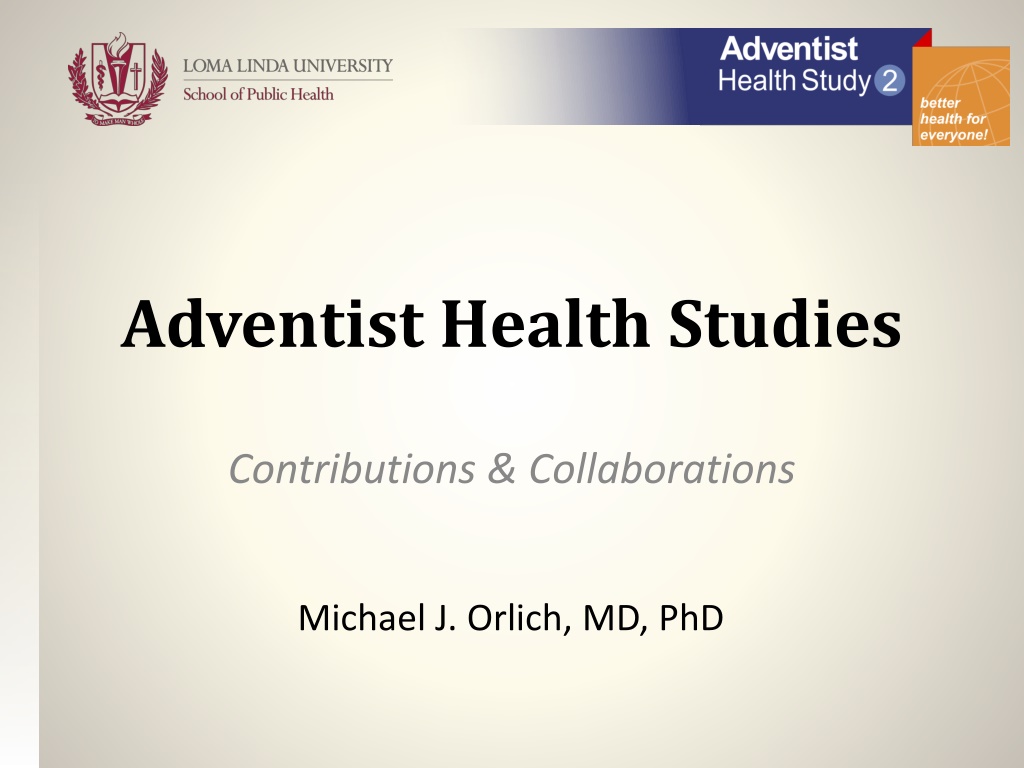

![get⚡[PDF]❤ The Healthiest People on Earth: Your Guide to Living 10 Years Longer](/thumb/20470/get-pdf-the-healthiest-people-on-earth-your-guide-to-living-10-years-longer.jpg)

